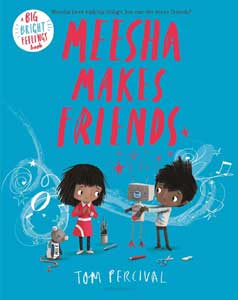The Friendship Maze
Our partners at Role Models share 5 tips for helping your child make friends.
For many children, friendship can sometimes feel like a bit of a maze. They may find it difficult to make friends or challenging to build relationships, and many find it hard to respond to the inevitable ups and downs friendships can bring.
If you notice your child struggles with social interaction and perhaps presents as shy and cautious when it comes to making friends, try not to put any pressure on the situation. We can easily excuse our children’s behaviour, apologising for them by saying ‘she’s shy’ or ‘why are you being so silly?’ but by doing this we run the risk of labelling our child. They may hear those around them saying ‘she’s shy’ and may go on to believe ‘I’m not good at making at friends’. Some children may pick up on a sense of frustration or disappointment from those around them too, and this can give the implicit message that it’s about their personality.
Here are 5 ideas to help you and your child deal with the friendship maze:
- It’s not about your child’s personality, it’s about social skills
If you child struggles to make new friends or build existing friendships, take a moment to reflect on which exact part they struggle with. The ability to have effective social interactions can be summarised into 4 specific skills;
- Starting and keeping a conversation going
- Listening and understanding others
- Responding to social cues
- Having positive interactions
All of these are skills, as opposed to character traits, meaning that you can help your child get better at any of them. This is not about their personality but about a specific skill they need to strengthen.
- Starting a conversation
If you notice it’s starting a conversation and keeping it going that your child finds hard, practice having conversations with them. Give them some opening lines to fall back on when they get tongue-tied:
- ‘I like your shoes/headband/bike’
- ‘Do you like… X?’
- ‘What did you do at the weekend?’
- Common interests and humour
Hoping for your child to connect more effectively with others? Help them find children with common interests to share their knowledge and love of a particular topic. This could be through an after-school club or virtual kids clubs like Rainbows, Brownies or Guides.
Humour is another great connector; help your child develop their sense of humour and encourage them to seek out those who are on the same wavelength as them.
- Help your child develop their emotional awareness
Friendships and interactions with others often trigger big feelings and emotions. Help your child name and recognise these including jealousy, frustration, embarrassment, disappointment etc. ‘I wonder if you might be feeling jealous of your brother… let’s talk about what that feels like’, ‘It’s natural to feel disappointed about not being invited to the party. Shall we talk about it?’
Learning to name and understand big emotions will help them respond to the inevitable ups and downs of friendships.
- Allow conflict
Conflict resolution is an essential skill and one your child will need for forming friendships and interacting with others. Rather than stepping in to prevent or resolve arguments between siblings or friends, allow your child the independence to develop and apply these skills. You can do this from the sidelines, being there to support and model where necessary.
 Helping your child with the areas above will strengthen their skills and their chance of making genuine connections. A great book for those who may struggle with making new friends is Meesha Makes Friends by Tom Percival for age 5+.
Helping your child with the areas above will strengthen their skills and their chance of making genuine connections. A great book for those who may struggle with making new friends is Meesha Makes Friends by Tom Percival for age 5+.
Louise’s recent Instagram Live on this topic can be found here.
This article was written by Louise Treherne, Director of Character Education at Role Models. Louise has a degree in Psychology, 12 years experience as a teacher and 5 years as a Senior Deputy Head at a London Prep school. She now works as a Professional Coach and Educational Consultant.

